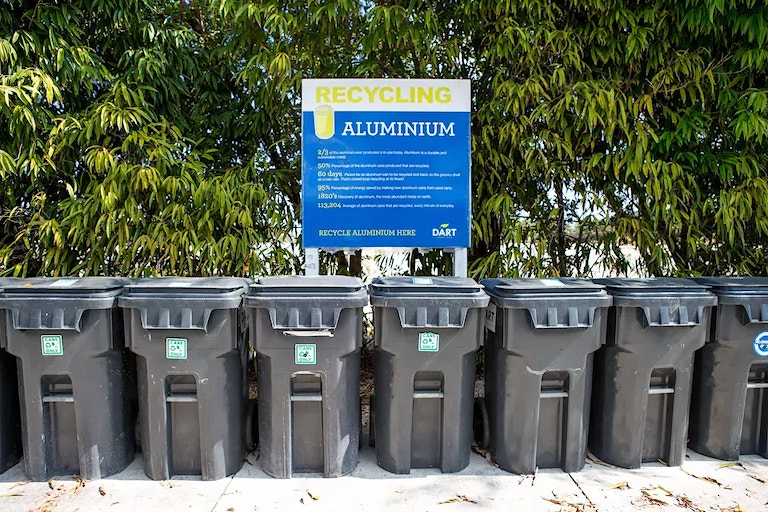
Safety Considerations
General safety considerations when visiting the Cayman Islands with tips on weather, crime, driving, and more.


Whilst the Cayman Islands are undoubtedly a safe place to visit, live and work, there are always unforeseen circumstances that may arise. Here's what to be aware of.
Weather
Fun in the sun will be pretty limited if you get sunburn or heatstroke. Regardless of your skin type, apply high-factor sunscreen and put SPF 50 sun tops on children. Ideally, you should avoid the midday sun altogether, particularly as it is easy to underestimate the power of the sun’s rays with a cool tropical breeze. If you get heatstroke, rehydrate with water or juices with electrolytes. Aloe vera gel is great for treating sunburn.
Crime
The crime threat in the Cayman Islands is generally considered low, although you should always take normal precautions. Petty theft does occur occasionally, but Cayman is one of the safest places in the Caribbean.
Guns & Ammunition
Visitors from America are warned to never carry ammunition or firearms in their luggage when travelling to Cayman as it is illegal and you will face prosecution and a hefty fine if caught.
Cannabis
Cannabis in the Cayman Islands has been legal for medical purposes since 2017. However, the use of cannabis for recreational purposes still remains prohibited. With the drug now sold legally in some US states, visitors should be cautioned that it is currently illegal to bring any quantity of cannabis into the Cayman Islands. If caught, you could be liable to a hefty fine and a criminal record.
Roads
KEEP LEFT when driving! When on foot and crossing a road LOOK RIGHT! As in Great Britain and its other territories, vehicles in the Cayman Islands travel on the left-hand side of the road. Drink-driving laws are strictly enforced. Seatbelt laws are also enforced and require all passengers to buckle up. Children’s seats are strongly recommended. Only use hands-free mobile devices when driving. Understanding the rules of a roundabout is also essential.
Food & Water
Food and water are considered very safe, however some types of tropical reef fish can occasionally be poisonous when eaten. The majority of accommodation is connected to ‘city water’ which is great to drink, but a few places still have ‘cistern’ or ‘well’ water. In these situations check with the owner if it is safe to drink.
Food in Daily Life
Seafood is predominant. The traditional national dish is turtle; conch is also popular, either served raw with lime juice and onions, or cooked as a stew, chowder, or fritters. A number of recipes show influences from other Caribbean countries such as Jamaica and Trinidad.
"Jerking," a slow-smoking process using a blend of spices, and "heavy cake," a dense sweet dessert made with "breadkind" (starchy vegetables such as cassava, papaya, and yams) are two examples. "Fish rundown" is fish stewed with "breadkind." "Swankie" is lemonade.
Other common local ingredients include key limes, honey, rum, and coconut. Other than fish, turtle meat, and a few local fruits and vegetables, almost all food must be imported.
At Christmas, beef (a luxury item) is featured, along with heavy cake and non-native fruits such as apples, pears, and grapes. Drinks based on corn, sorrel, and pineapple are also traditional during the holiday season.
Medical
The World Health Organization (WHO) states that no vaccinations are required for international travel to the Cayman Islands. However, ensure you have adequate travel and medical insurance as Cayman does not operate a national ‘free’ health service. Serious medical cases will normally be transferred to Miami via air ambulance.
Land
There are no dangerous animals in Cayman and we are rabies free. Grass snakes are very rare and harmless, and the odd spider is really nothing to fear, but if you are bitten get an antihistamine from a pharmacy or for serious cases get a steroid shot from a doctor. In the extremely unlikely event that you are stung by a scorpion, go to a doctor or the hospital immediately. If you walk the Mastic Trail, there are three plant species that contain skin irritants and should be avoided.
Mosquitoes
Mosquitoes are typically very active at sunrise and sunset, so keep a bottle of mosquito repellent close by. If bitten, use an anti-inflammatory cream. Cayman does not have malaria, zika or chikungunya but there have been a few imported cases of Dengue over the last few years.
Sea
Jellyfish stings and Sea Itch are rare but not fun, so be careful snorkelling and diving. Sea Itch is the invisible larvae of thimble jellyfish, and appears from late March to June. You can use Safe Sea cream to prevent any issues from both. If it’s too late, a splash of vinegar will soothe, and for serious cases, get an anti-histamine from a pharmacy or a steroid shot from the doctor.
Divers in particular should be aware of the increasing lionfish population on the reefs. As these fish tend to hang upside down from overhead environments exercise caution when entering swim-throughs and caves. If stung, a splash of vinegar is soothing and for serious cases, get an anti-histamine from a pharmacy or a steroid shot from the doctor.
Diving
Be aware of the ‘bends’. Cayman does have a decompression chamber, but don’t plan to use it! Ear complications can result from diving with a cold, and may require a doctor’s attention. Lionfish are venomous so avoid them.








